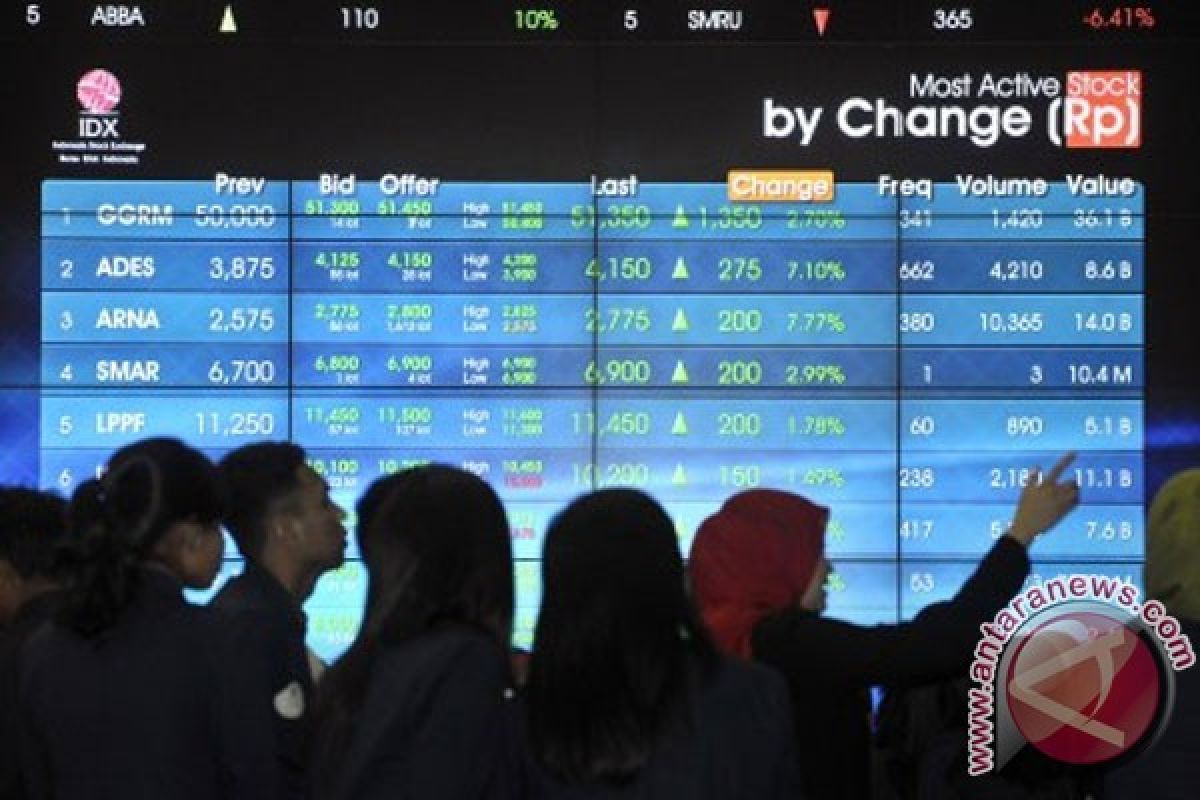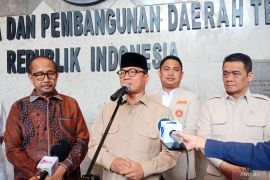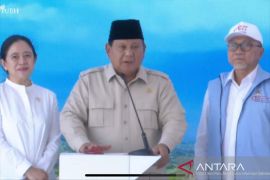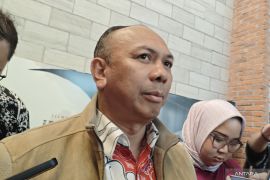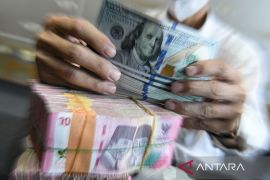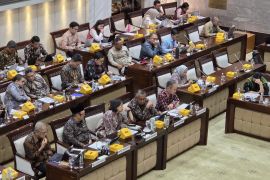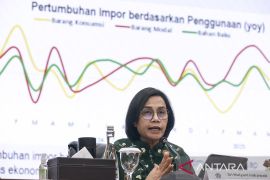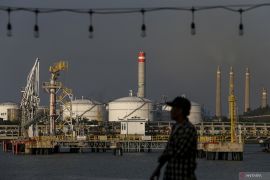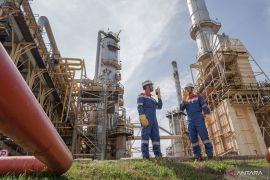We continue to do the best to reach the target of 6.8 percent...Jakarta (ANTARA News) - Amid predictions of lower economic growth by international institutions, Bank Indonesia (BI) is still convinced that Indonesia`s economy still can grow by 6.6 percent.
The Indonesian central bank said Indonesia`s economic growth in 2013 would be at range of 6.2 percent - 6.6 percent, though the world still faced negative economic expectation.
"The country`s financial stability system that will support sustainable economic growth is still under controlled," Endy Dwi Tjahjono, BI deputy director for research, economic and monetary policy affairs, told a seminar on "Economic Outlook 2013" last week.
The World Bank has predicted the country`s economy would expand 6.2 percent this year, while the Asian Development Bank is more optimistic predicting a higher growth of 6.4 percent.
Endy also mentioned the increasing numbers of middle class people who would lift the country`s consumption level. The government`s infrastructure projects worth Rp458 trillion in 2013 will reduce production and logistics costs.
In the meantime, the investment conditions in the coming six months are expected to increase, particularly in the processing industry and financial sector. After all, the general elections which will be held next year will increase the people`s economic activities and purchasing power in 2013.
Therefore, the government is optimistic that the country`s economic growth still could reach 6.5 percent this year. Outgoing Finance Minister Agus Martowardojo has predicted the country`s economy will grow 6.5 percent this year, falling short of the previously set target of 6.8 percent on impact of global economic crisis.
"We continue to do the best to reach the target of 6.8 percent but our estimate puts the growth at 6.5 percent," Agus said after a meeting at the House of Representatives recently.
He said the global economic crisis began to bite as obvious from the slowdown in the country`s investment growth in the past several months.
The country`s economic growth still could be generated by investment, particularly the realization of foreign investment (PMA) and domestic investment (PMDN).
"The country`s PMA and PMDN performance is already relatively good. But the government still have to maintain and increase it," finance minister`s expert staff for state spending Budiarso Teguh Widodo said meanwhile.
He said that all sides need to work hard to maintain the stability of investment, economy and politics so that the trust of foreign investors could be preserved.
Besides investment, public consumption is also expected to generate Indonesia`s economic growth which in the 2013 State Budget is set at 6.8 percent.
"Like in previous years, the economic growth this year is expected to be boosted by public consumption. There are indications that public consumption will be strong this year with contribution to the economic growth reaching 3.1 percent," Budiarso told a seminar on fiscal policies 2013 and latest economic developments.
He said that the government would use various fiscal policies in its efforts to maintain the people`s purchasing power or consumption and their real income.
"The policies for that end could be adopted by increasing the non-taxable income of the people, social expenditure programs and adjustment of civil servants and military/police`s salaries," he said.
In the meantime, the government`s plan to raise subsidized fuel oil prices is also expected to help boost economic growth.
According to Mohammad Hatta, a member of Commission XI of the House of Representatives (DPR), the government`s plan to raise subsidized fuel prices and reduce subsidy can also boost economic growth if the fund that is cut from the subsidy is used to develop infrastructure.
"The increase in the price of subsidized premium gasoline for private cars will reduce subsidy and if the fund obtained from the subsidy deduction is used for infrastructure development, it will generate economic growth," he said.
The government is planning next month to introduce a two pricing system for subsidized fuels, namely Rp4,500 per liter for public transportation vehicles and motorbikes and Rp6,500 per liter for private cars.
Acting Chief of the Finance Ministry`s Fiscal Policy Agency Bambang Brodjonegoro said that the price increase of fuel oil would have positive impact on the quality of the country`s economic growth.
"If the policy (of raising subsidized fuel oil price) is adopted it will have positive effect on the growth and good influence on macro economy," he said.
Bambang predicted that the global economic condition would have begun to be improving in the second semester of the year, hoping that the economic growth target set at 6.3 - 6.5 percent this year would be achieved.
In the 2013 state budget, the government has set economic growth at 6.8 percent, inflation rate at 4.9 percent, the rupiah`s exchange rate against the dollar at Rp9,300 and interest on three-month state treasury notes at 5 percent.
"We lay our hope on the second semester. We hope that there would be improvement in the global economy," Bambang said.
Last year, the country`s economy grew only 6.2 percent. The growth could have reached 6.3 percent or 6.4 percent if the country had performed better in capital spending.
The country`s central bank has earlier shown its optimism in setting its previous target. But it has revised it down. It set its latest prediction on the country`s economic growth at a range of 6.2-6.6 percent this year, falling short of its earlier target of 6.3-6.8 percent.
Regarding predictions on the country`s economic growth in 2014, Bobby Hamzar, deputy chief economic minister for fiscal and monetary coordination, said that Indonesia`s economic growth in 2014 can reach the seven percent target if the government works hard in strengthening domestic economy.
"With a hard work in reinforcing domestic economy, the country`s economic growth in 2014 can reach seven percent," Bobby said.
He said that there were challenges and opportunities. The challenges included improvement in investment climate, manpower problems, infrastructure, fiscal health, budget absorption and social political stability with regard to the coming general elections. The other challenges are prediction of the slowing down of global economy in 2013, the slow recovery of commodity prices and the increase in the number of non-tariff barriers.
However, there are also opportunities such as big domestic market, increasing number of middle-class people, increasing activities in the run-up to the elections which would boost the domestic economy, the recovery of the debt crisis in Europe and the United States economic recession and the strengthening of the Chinese economy.
(T.A014/B003)
Reporter: Andi Abdussalam
Editor: Priyambodo RH
Copyright © ANTARA 2013
